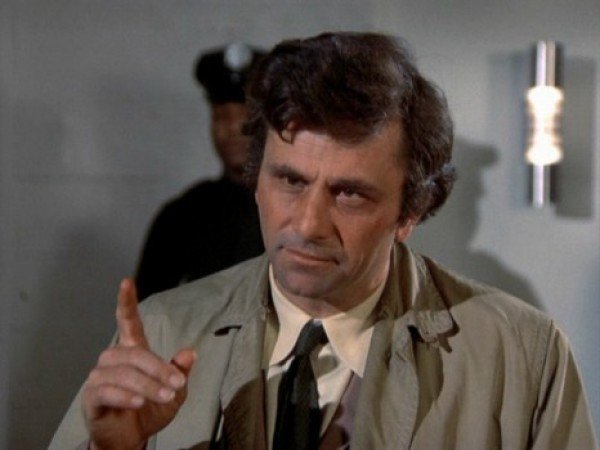In researching links for this site, I came across an obituary for Peter Falk, who died June 23, 2011.
Learning that it had been the night of June 23 (a Thursday that year) and not the next day (my wedding anniversary) was a jolt. I really, really, really, really like Columbo.
But the bigger problem came with this statement, in the New York Times obit:
“This is, perhaps, the most thoroughgoing satisfaction ‘Columbo’ offers us,” Jeff Greenfield wrote in The New York Times in 1973: “the assurance that those who dwell in marble and satin, those whose clothes, food, cars and mates are the very best, do not deserve it.”
That’s not true.
Leave it to The Times, and a review from early in The Train Wreck Decade, but that is not why we’re satisfied. It’s not why we connect with Columbo.
The point is not that they “do not deserve it.”
If we thought that, we’d be guilty of the same sin as the satin-dwellers themselves, because we’d be judging the worth of people based on their wealth.
The point is that even the rich are subject to the same laws, moral or otherwise.
By and large, Americans do not begrudge people their money. In fact, in good and bad ways, we aspire to it. Rather, we do not want them to receive inappropriate special treatment because of it. And yes, we give it to them ourselves too often. But we don’t want to, and we don’t want others to either.
What satisfies about Columbo, on this point anyway, is that if the wealthy violate reality, they will pay — just like the rest of us.
We don’t care if they drive a BMW.
We care if they drive it off a cliff and it doesn’t crash.
